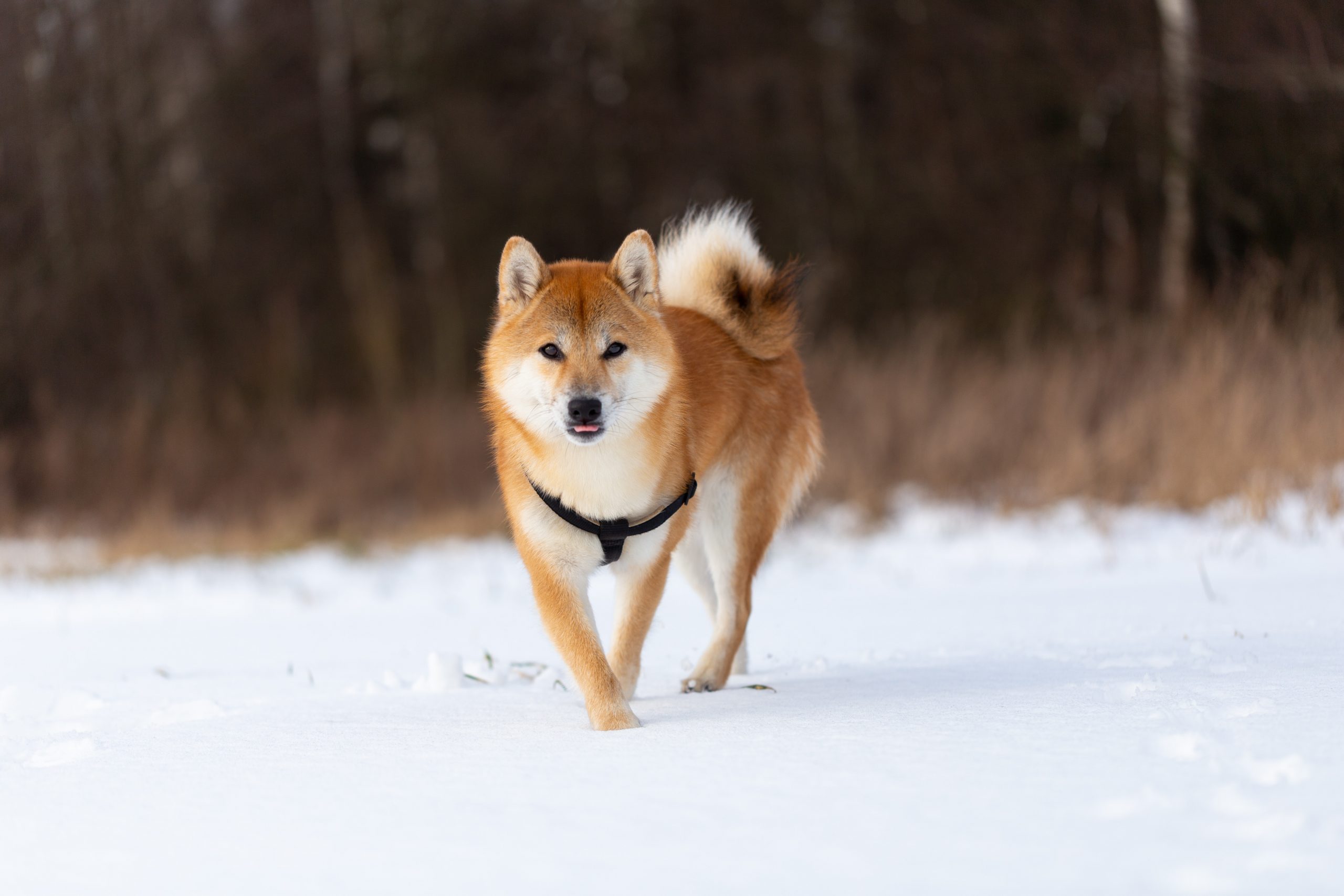Shiba Inus, originally bred for hunting in the mountainous regions of Japan, are known for their distinct appearance and spirited personality. As a breed accustomed to varied climates, there are often questions about their adaptability and safety in colder weather. This detailed article seeks to explore the resilience of Shiba Inus to cold conditions, focusing on their physical characteristics, health considerations, and necessary care during the colder months to ensure their well-being.
Shiba Inu Coat Characteristics and Cold Weather Adaptation
Shiba Inus are equipped with a double coat, featuring a soft, dense undercoat and a stiff, straight outer coat. This type of coat is excellent for providing insulation against cold temperatures, making Shiba Inus inherently well-suited to colder climates. Their coat not only keeps them warm but also offers protection from snow and wet conditions.
Health Considerations for Shiba Inus in Winter
Despite their natural insulation, Shiba Inus can still face health challenges in extremely cold weather. Prolonged exposure to harsh winter conditions can lead to risks such as hypothermia and frostbite, especially in more sensitive areas like the ears, nose, and paws. Additionally, cold weather can exacerbate joint issues, particularly in older Shiba Inus.
Appropriate Outdoor Gear for Shiba Inus in Cold Weather
While Shiba Inus have a coat that provides natural protection against the cold, in extreme weather conditions, additional protection like insulated dog jackets can be beneficial. This is particularly important for Shiba Inus living in unusually cold climates or those who spend a lot of time outdoors in winter.
Indoor Comfort and Safety for Shiba Inus During Winter
Ensuring a comfortable and warm indoor environment is crucial for Shiba Inus during the winter. They should have a cozy, draft-free place to sleep, and homes with tiled or wooden floors should provide a soft bed or rug to offer additional insulation. The indoor temperature should be kept stable to avoid sudden changes that could affect their comfort.
Nutritional Needs of Shiba Inus in Cold Weather
The dietary needs of Shiba Inus may change slightly during colder months. They might require a bit more food to help maintain their body heat, especially if they are active outdoors. However, it’s important to monitor their food intake and weight to prevent obesity, which can lead to other health issues.
Exercising Shiba Inus in Cold Weather
Regular exercise is important for Shiba Inus, even in cold weather. Their natural agility and energy levels mean they usually enjoy playing in the snow. However, it’s important to monitor the time they spend outside in very cold temperatures and adjust their exercise routine to avoid overexposure to extreme cold.
Health Monitoring and Veterinary Care for Shiba Inus in Winter
Regular health monitoring is vital during the winter months for Shiba Inus. Owners should be vigilant for signs of discomfort or distress in cold weather, such as reluctance to go outside, shivering, or changes in behavior. Regular veterinary check-ups can help ensure that any health concerns, such as exacerbated joint problems due to the cold, are promptly addressed.
Conclusion: Ensuring the Well-being of Shiba Inus in Cold Weather
In conclusion, Shiba Inus are generally well-equipped to handle cold weather due to their origin and physical attributes. However, they still require attentive care during the winter months. By understanding and addressing their specific needs, such as providing appropriate winter gear, ensuring a warm living environment, and monitoring their health and exercise, owners can ensure that their Shiba Inus stay safe, comfortable, and healthy throughout the winter season.





